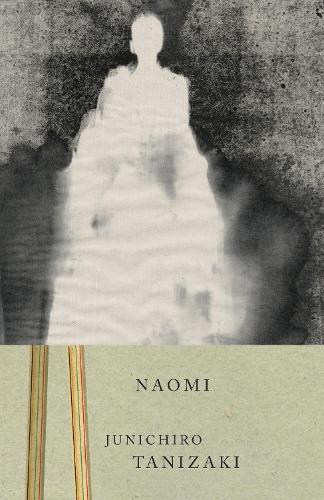
Naomi
(Paperback)
Publishing Details
Naomi
By (Author) Junichiro Tanizaki
Random House USA Inc
Vintage Books
10th April 2001
23rd October 2013
United States
Classifications
General
Fiction
FIC
Physical Properties
Paperback
256
Width 132mm, Height 202mm, Spine 14mm
187g
Description
A hilarious story of one man's obsession and a brilliant reckoning of a nation's cultural confusion-from a master Japanese novelist. When twenty-eight-year-old Joji first lays eyes upon the teenage waitress Naomi, he is instantly smitten by her exotic, almost Western appearance. Determined to transform her into the perfect wife and to whisk her away from the seamy underbelly of post-World War I Tokyo, Joji adopts and ultimately marries Naomi, paying for English and music lessons that promise to mold her into his ideal companion. But as she grows older, Joji discovers that Naomi is far from the naive girl of his fantasies. And, in Tanizaki's masterpiece of lurid obsession, passion quickly descends into comically helpless masochism.
Reviews
"In a class with Lady Chatterley's Lover and Lolita. . . . Powerfully erotic, directly funny, a great novelist's masterpiece."
--Booklist
"Joji [is] exquisitely drawn, his uncomprehending guilelessness the perfect tool for the author's deft cross-cultural thrusts."
--The Washington Post Book Review
Author Bio
JUNICHIRO TANIZAKIwas born in Tokyo in 1886 and lived in the city until the earthquake of 1923, when he moved to the Kyoto-Osaka region, the scene of one of his most well-known novels, The Makioka Sisters (1943-48). The author of over twenty books, including Naomi (1924), Some Prefer Nettles (1928), Arrowroot (1931), and A Portrait of Shunkin (1933), Tanizaki also published translations of the Japanese classic, The Tale of Genji in 1941, 1954, and 1965. Several of his novels, including Quicksand (1930), The Key (1956), and Diary of a Mad Old Man (1961) were made into movies. He was awarded Japan's Imperial Prize in Literature in 1949, and in 1965 he became the first Japanese writer to be elected as an honorary member of the American Academy and the National Institute of Arts and Letters. Tanizaki died in 1965.
